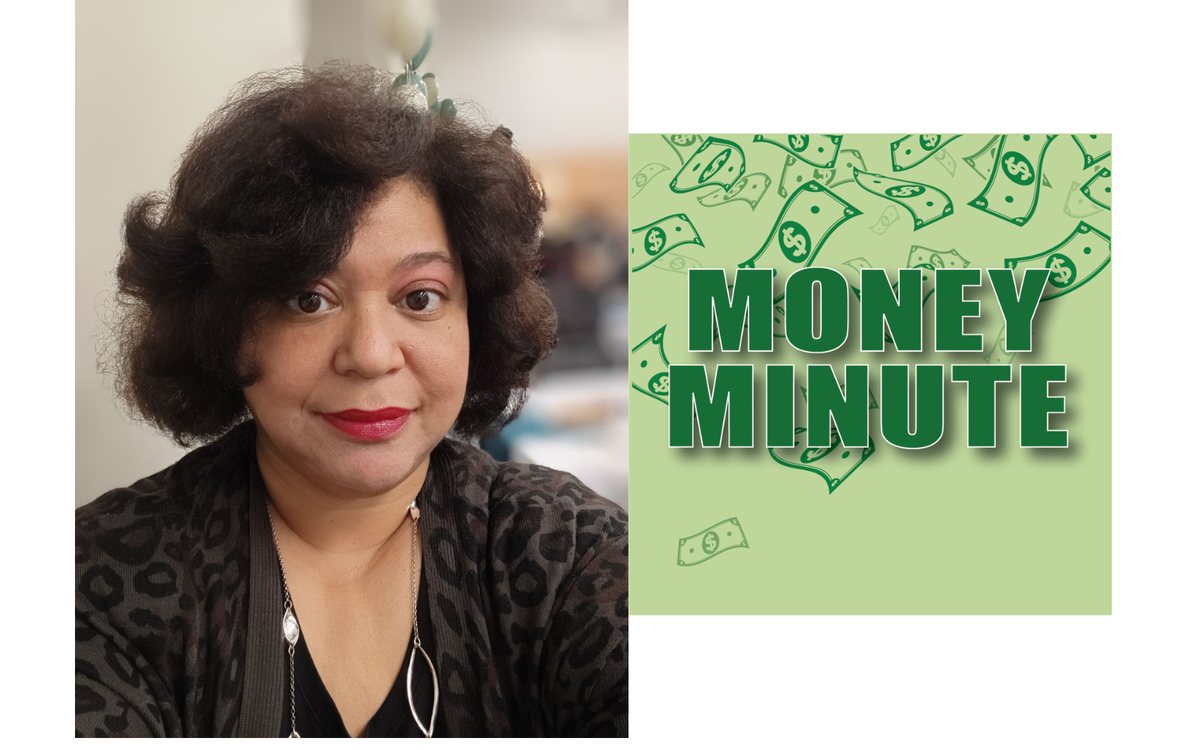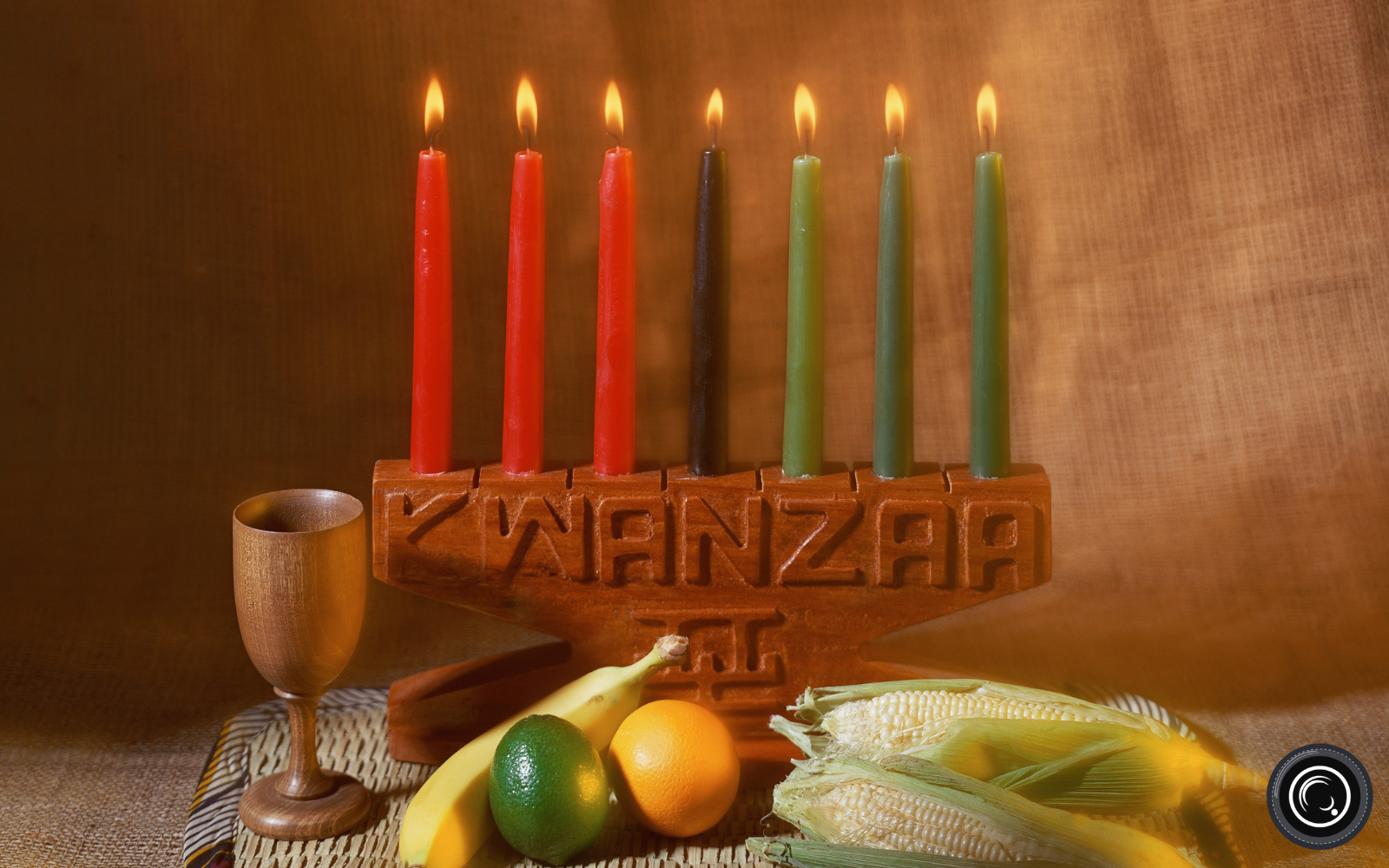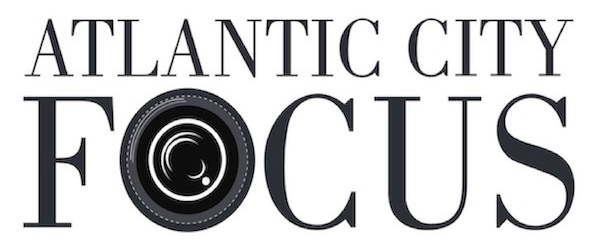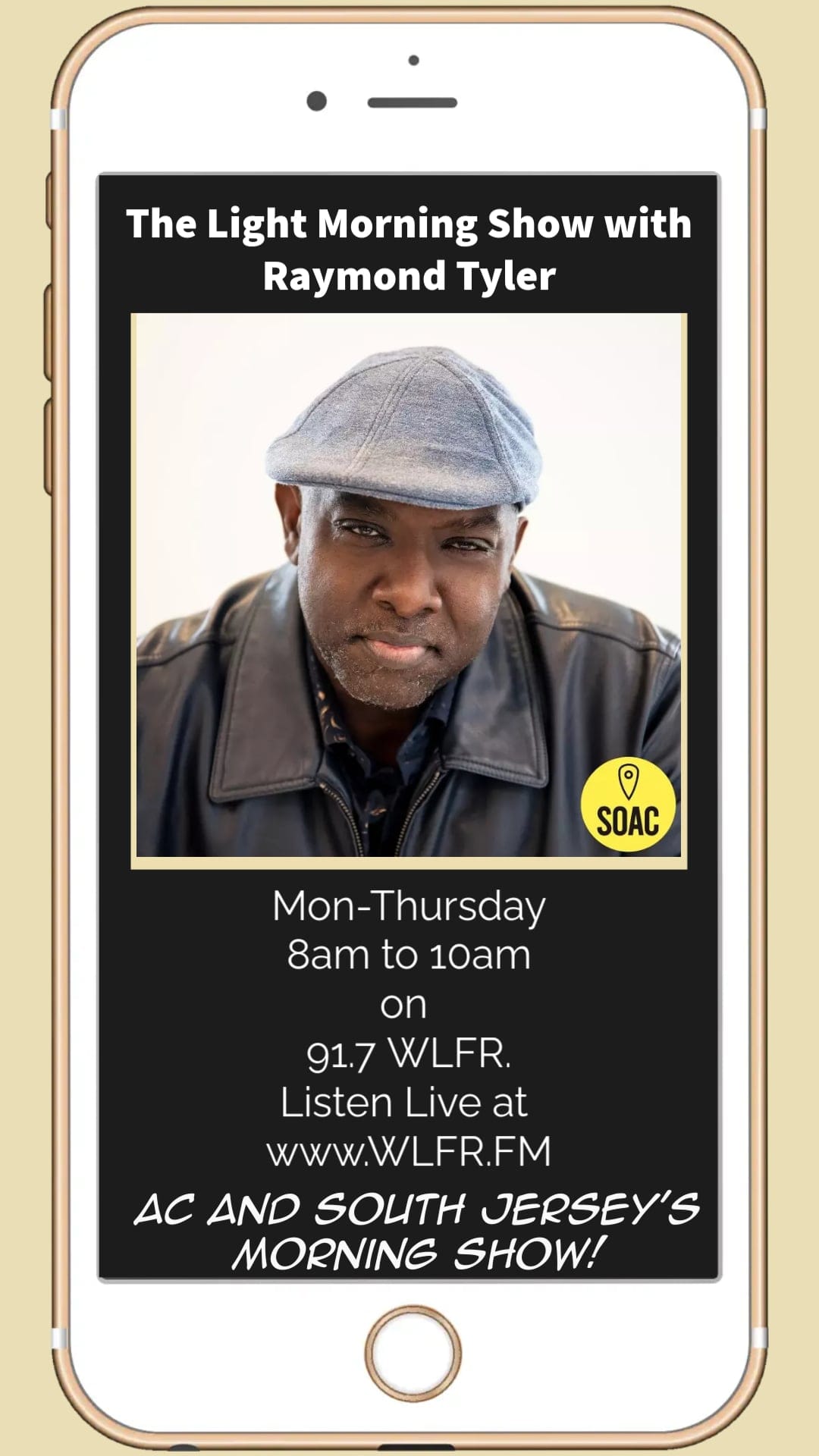Living the Nguzo Saba: Seven Principles of Kwanzaa
Kwanzaa is derived from the Swahili phrase 'matunda ya kwanza' meaning 'first fruits' of the harvest. It contains cultural elements and practices of various African nations and ethnicities. The key element of this seven-day holiday is the Nguzo Saba.

Kwanzaa is a secular holiday founded in 1966 during the Black Power movement by Dr. Maulana Ndabezitha Karenga (born Ronald McKinley Everett) and the Us organization.
It always occurs from December 26th through January 1st. This celebration was designed for African Americans (Black Americans) as an acknowledgement of their African ancestry. Kwanzaa is derived from the Swahili phrase 'matunda ya kwanza' meaning 'first fruits' of the harvest. It contains cultural elements and practices of various African nations and ethnicities. The key element of this seven-day holiday is the Nguzo Saba.
Organization Us describes the Nguzo Saba as "a critical value system for rescuing and reconstructing our lives as a people." Each day a different candle on the kinara (a seven-branched candle holder) should be lit to acknowledge a different principle of the Nguzo Saba. Traditionally, the kinara will have three red candles on one side, three green candles on the other side and one black candle in the middle. This 'Money Minute' will provide some ideas as to how you can live out the Nguzo Saba in your daily life; not just during the holiday season.

Kwanzaa celebrations include handmade decorations and ziwadi (gifts). Handcrafted items can be personalized and have sentimental appeal. If you have been taking sewing, knitting, and/or crochet lessons, here's your chance to show off your skills. Don't overlook thrift stores. You can purchase some cool stuff then paint, refurbish, or even bedazzle it if you like. For example, a candelabra can be transformed into an artistic kinara just perfect for Kwanzaa. Those of you who have a 3D printer can definitely bring the 'Wow!' factor in decor and gift creation. Let's normalize giving books as gifts. I urge you to shop at local independent Black-owned bookstores such as L'ouverture Books, which was started in Pleasantville. My friends, Andrew and Malaika Wells, have a business that is Kwanzaa centered. It is truly a family affair as each member of the family - two parents and four children - has defined roles in the creation, advertising, and sales of their company's products. Check out their products: https://thekwanzaacompany.com .
Nguzo Saba: 7 Principles of Kwanzaa
Day 1: Umoja (Unity) – to strive for and maintain unity in the family, community, nation, and race. {Seek out opportunities to unify. Volunteering as a family in your community builds unity.
Create programs and/or events that foster unity between groups that might not ordinarily connect. Are there rifts in your family or community? Be a peacemaker, a unifier. Be the one to offer the 'olive branch' of reconciliation and friendship. For
example, an intergenerational griot type of storytelling event. Have inter-faith gatherings t0 fellowship and unify over shared spiritual concepts and to gain understanding of others' faith/religion.}
Day 2: Kujichagulia (Self-determination) – to define and name ourselves, create for ourselves, and speak for ourselves. {Studying, teaching, promoting, and applying the principles of Garveyism, various Pan- African movements, the Harlem Renaissance, 'Black Wall Street,' Western and mid- western towns established by those enslaved and free, the modern Civil Rights Movement, reparations movement, and various legislative action [C.R.O.W.N. Act]
define, empower and inform Kujichagulia. My first mentor, Dr. Walt Palmer, of
Philadelphia, PA (https://thewdpalmerfoundation.org) has been teaching for more than 70 years that Black liberation comes from the foundation of "self-help - self-reliance - self- determination." I include in this principle the right to claim all of our ethnic and racial groups as Black Americans are indigenous to this continent of North America and are actually the most racially mixed group of people in the United States of America (USA).}
Day 3: Ujima (Collective Work and Responsibility) – to build and maintain our community together and make our brother’s and sister’s problems our problems and to solve them together. {An overall African mindset is that community comes first before individualism; a stark contrast to the American mindset of prioritizing personal freedoms, goals, and desires. In Pan-African circles this is referred to as Ubuntu (South African/Xhosa) a shared humanity. Some examples of Ujima would be to check on the safety and needs of the elders in your neighborhood on a regular basis. Work to end, or at least, curtail the homelessness that is so rampant in many cities and towns. Volunteer to tutor at a neighborhood afterschool program. Provide some much needed companionship, entertainment, and faith-based interactions at senior citizen buildings and senior centers. Create a neighborhood food pantry or meal program to provide nourishment during these difficult economic times.}
Day 4: Ujamaa (Cooperative Economics) – to build and maintain our own stores, shops, and other businesses and to profit from them together.
{Consider first Black-owned local businesses to purchase goods and services. Think about family members that you can patronize. You can become their customer or client. Create financial literacy and entrepreneurship programs for various age groups, including family financial literacy sessions. Participate in a 'sou-sou' for collective financial gain and/or seed capital to start businesses or purchase real estate. One of my mentors, James "Jim" Clingman, has, as a journalist, author, organnizer, educator, and activist, been preaching the 'good Gospel' of Black economic empowerment for several decades. I recommend that people read his books, especially Blackonomics: The Way to Psychological and Economic Freedom for African Americans and Black Empowerment With an Attitude! You Got a Problem with That?}
Day 5: Nia (Purpose) – to make our collective vocation the building and developing of our community in order to restore our people to their traditional greatness. {Be intentional about community development. First look within to the gifts, talents, occupations, and professions that already exist within your community before seeking outside assistance or allowing outsiders to dominate; especially historic neighborhoods. While grants, donations, and sponsorships are needed many times to restore, beautify, and maintain communities, it is first and foremost 'people power' that sustains a community. Emphasize to younger generations that there is an expectation that they will be a positive and productive part of their community and not behave in a way that is destructive or detrimental to its safety and peace as well as the reputation of their family and spiritual upbringing.}
Day 6: Kuumba (Creativity) – to do always as much as we can, in the way we can, in order to leave our community more beautiful and beneficial than we inherited it. {Citizens have, within their own communities, that which is needed to keep it safe, clean, and thriving, for the most part. We owe it to our ancestors and elders to let creativity flourish and the fighting spirit continue so that community is a reflection of the morals, spirituality, and God-given creativity gifted to Black people. Join with those in the trades to renovate buildings and do household projects for those neighbors who struggle to maintain their properties due to lack of finances, advanced age, or disabilities. Community clean-ups, festivals showcasing the Arts, local afterschool programs, create a local theatre troupe, convert an underutilized space into an arts center/theatre, participate in or create neighborhood watch programs, decorative 'Little free library' book-sharing boxes, and events in various houses of worship combine to benefit communities and provide much needed sustainability.}
Day 7: Imani (Faith) – to believe with all our heart in our people, our parents, our teachers, our leaders, and the righteousness and victory of our struggle.
{Listening to oral histories of ancestors and living elders about not only the struggles but also the victories and accomplishments provides encouragement to overcome the many obstacles present in a racist society. Having youth interview their elderly family members, neighbors, and key figures in their community develops and strengthens intergenerations bonds while providing personal and historical context to what is often overlooked in formal history and social studies curriculum. For example, many elders, especially women, do not mention their military service and it may not be presented until they die when an obituary is written or when old photographs and letters are discovered.}
Conclusion: Practice the principles of the Nguzo Saba while being mindful of the cultural mentality and practices that strengthen, uplift, and prosper African American/Black American families, businesses, houses of worship, and communities.
Get a free Financial Needs Analysis: Call (484) 416-0442 Use code AC Focus
(Paula Goddard is a contributing writer for Atlantic City Focus. She is an award-winning writer, personal finance advisor, community organizer, and educator. She can be reached via social media @paulasuniverse and via email at pgMoneyMinute@gmail.com.)
Thanks for reading the whole story!
At Atlantic City Focus, we're committed to providing a platform where the diverse voices of our community can be heard, respected, and celebrated. As an independent online news platform, we rely on a unique mix of affordable advertising and the support of readers like you to continue delivering quality, community journalism that matters. Please support the businesses and organizations that support us by clicking on their ads. And by making a tax deductible donation today, you become a catalyst for change helping to amplify the authentic voices that might otherwise go unheard. And every contribution is greatly appreciated. Join us in making a difference—one uplifting story at a time!




